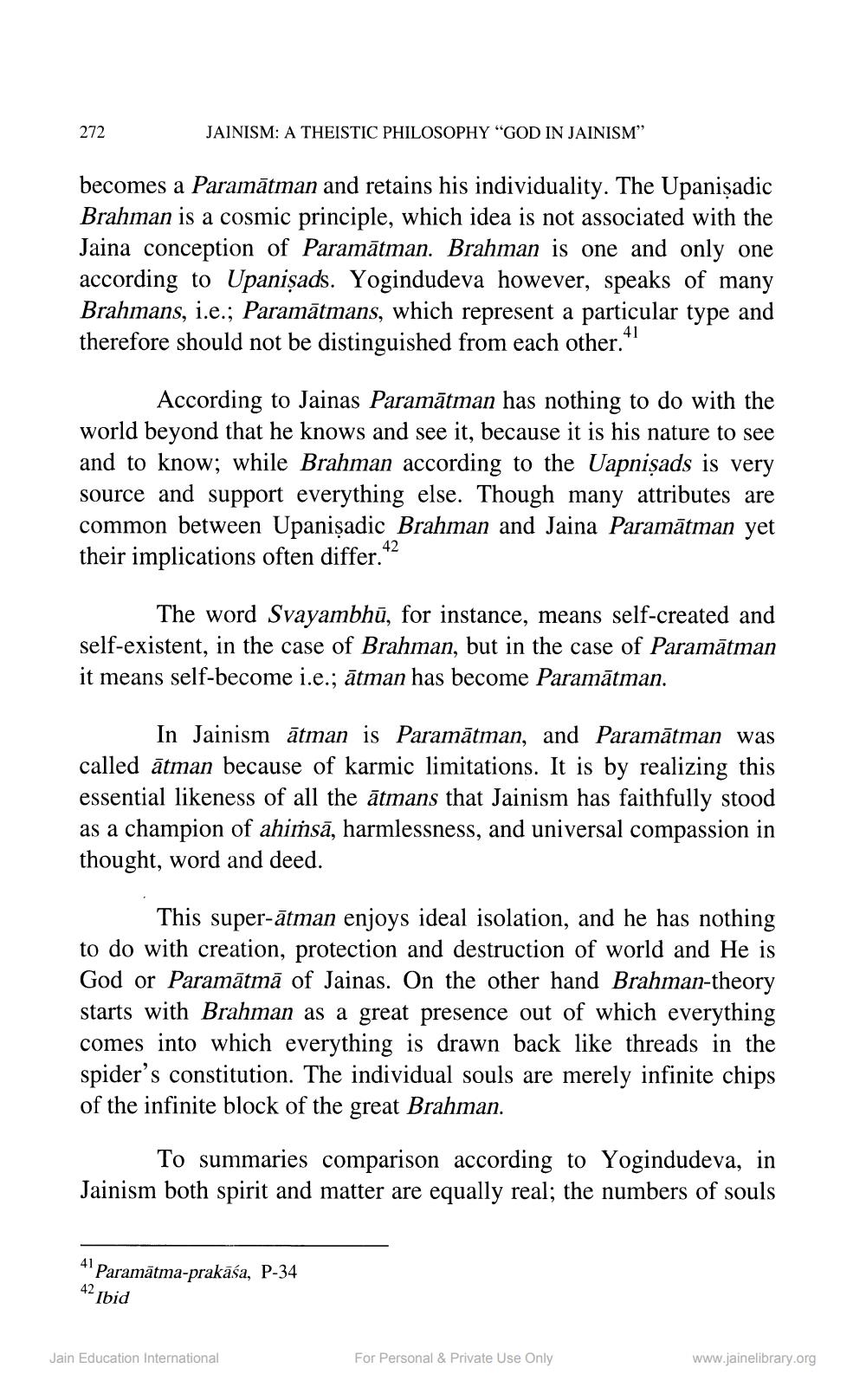________________
272
JAINISM: A THEISTIC PHILOSOPHY “GOD IN JAINISM”
becomes a Paramātman and retains his individuality. The Upanișadic Brahman is a cosmic principle, which idea is not associated with the Jaina conception of Paramātman. Brahman is one and only one according to Upanişads. Yogindudeva however, speaks of many Brahmans, i.e.; Paramātmans, which represent a particular type and therefore should not be distinguished from each other."
According to Jainas Paramātman has nothing to do with the world beyond that he knows and see it, because it is his nature to see and to know; while Brahman according to the Uapnişads is very source and support everything else. Though many attributes are common between Upanișadic Brahman and Jaina Paramātman yet their implications often differ. 42
The word Svayambhū, for instance, means self-created and self-existent, in the case of Brahman, but in the case of Paramātman it means self-become i.e.; ātman has become Paramātman.
In Jainism ātman is Paramātman, and Paramātman was called ātman because of karmic limitations. It is by realizing this essential likeness of all the ātmans that Jainism has faithfully stood as a champion of ahiṁsā, harmlessness, and universal compassion in thought, word and deed.
This super-ātman enjoys ideal isolation, and he has nothing to do with creation, protection and destruction of world and He is God or Paramātmā of Jainas. On the other hand Brahman-theory starts with Brahman as a great presence out of which everything comes into which everything is drawn back like threads in the spider's constitution. The individual souls are merely infinite chips of the infinite block of the great Brahman.
To summaries comparison according to Yogindudeva, in Jainism both spirit and matter are equally real; the numbers of souls
4. Paramātma-prakasa, P-34
42 Ibid
Jain Education International
For Personal & Private Use Only
www.jainelibrary.org




